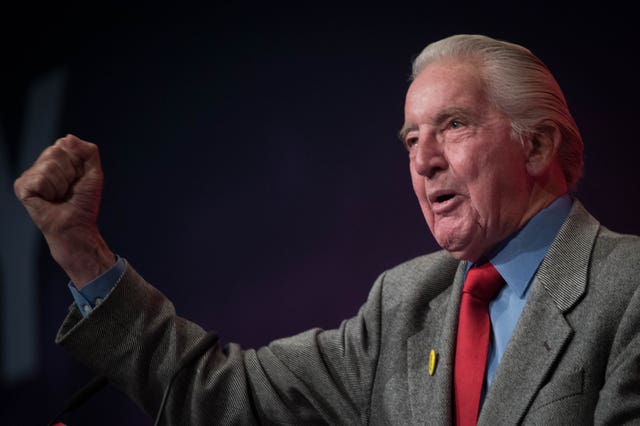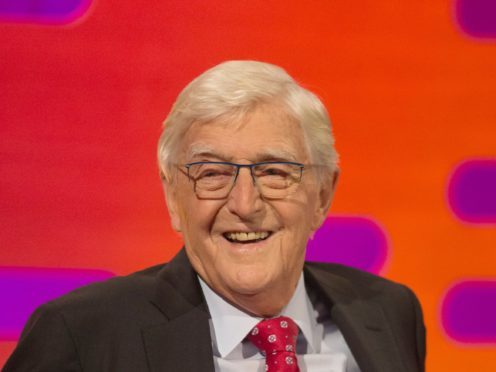Michael Parkinson has branded MP Dennis Skinner an “old ratbag” for opposing his show in the 1970s.
The veteran talk show host claims the Labour politician tried to hamper his bid to have Parkinson aired five nights a week.
Mr Skinner, 86, is claimed to have joined opposition to the presenter’s planned expansion into a more American chat show format.
Writing in Radio Times Magazine, 83-year-old Parkinson wrote that Mr Skinner, members the National Union of Journalists (NUJ), and BBC bosses conspired to stop plans for a broader show.
It was suggested in 1979, according to Parkinson, that his once-weekly show should grow to replace current affairs show Tonight, which aired five times a week.

He said: “The BBC wondered if I fancied a pop at five nights a week. I was told all the BBC bosses were behind me.
“In those days the NUJ had a vigorous presence in the BBC and when the news of the new show broke, a cell of disgruntled hacks immediately began a campaign involving old ratbags like Dennis Skinner to point out the consequences of replacing ‘serious political debate’ with tap-dancing or showbiz.”
He recalls that Mr Skinner raised questions in Parliament over the replacement of a current affairs programme with Parkinson, and that the BBC hierarchy also shared these concerns.
Parkinson references the decades-old grudge in his 2008 autobiography Parky, and dedicates a chapter to the dispute over his show.
He addresses a question directed by Skinner, from February 22 1979, to Merlyn Rees talking about the “removal of certain current affairs programmes and their replacement by chat shows”.
The famous Yorkshireman also recalls NUJ members walking out over the dispute.
Parkinson added: “This ignored the fact that the programme they objected to was to be conducted by someone with 30 years’ experience as a journalist.”
The presenter has written in Radio Times magazine wondering why the format has not been successfully attempted in the UK.
He said: “I believe a five-nights-a-week show could work here, but only if we can get the bosses to understand what an important and entertaining show it could be, and we get the right host.”
Radio Times Magazine is available today.
The office of Dennis Skinner has been contacted for comment.
